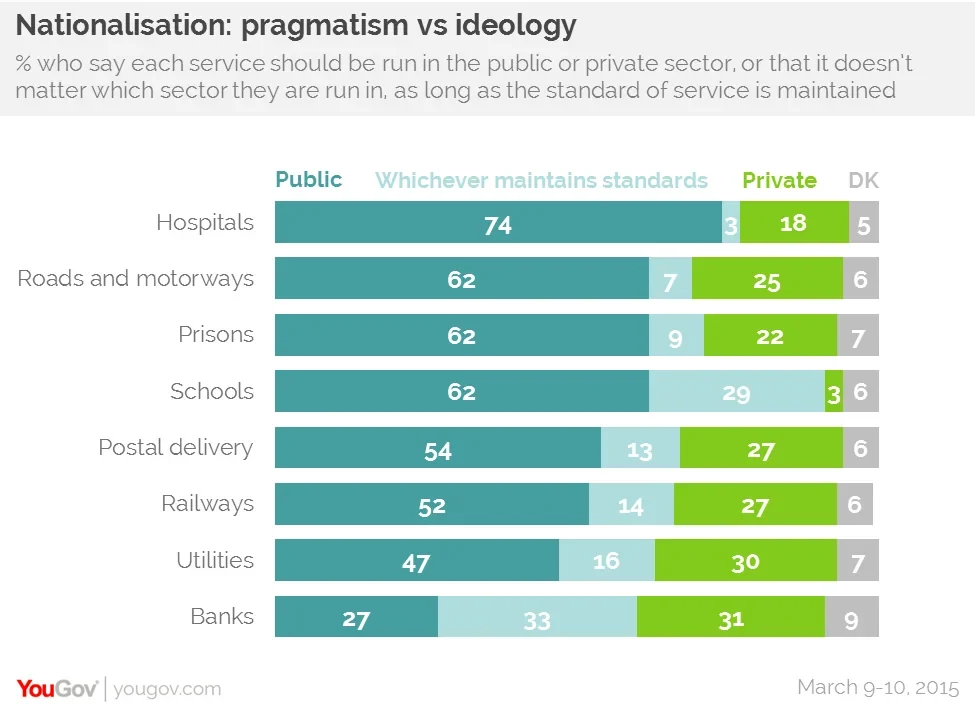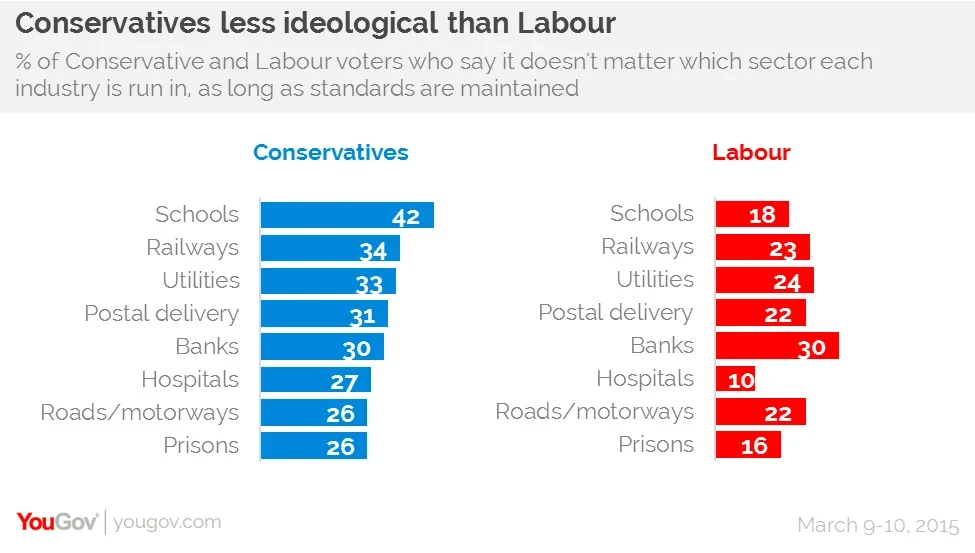Voters are far more ideological than pragmatic in the debate over running public services – 'whatever works' is the least popular approach
David Cameron pledged 500 more Free Schools by 2020 on Monday – a project that is perhaps the prime example of Conservative attempts to bridge the public / private sector divide. The schools, which the Prime Minister describes as "independent schools within the state sector", receive funding from the state, but are run by charities, teachers, groups of parents and academy sponsors (trusts, faith groups, universities or companies), and operate outside local authority control.
It’s not only the Conservatives who have blurred the lines between nationalisation and privatisation. Labour controversially introduced Private Finance Initiatives into the NHS, and the ‘what matters is what works’ mantra has become a symbol of centrism in the party.
New YouGov research finds none of this pragmatism in the British public on the question of the public and private sectors.

In six out of eight major public service areas, the option of running them in whichever sector that can maintain standards comes last, behind nationalisation and privatisation. Most people think the public sector should be the provider of every service apart from utilities and banks. Banks are the only service where nationalisation is the least popular option.
Somewhat reassuringly for the Conservatives, the only sector with a relatively high level of support for ‘whatever works’ is schools (29% chose this option) – as well as banks (33%).
In every area, Conservative voters are more likely to choose the ‘pragmatic’ option than Labour voters.

And there are no services (except banks) where Conservatives would rather privatisation to pragmatism – in every area apart from utilities and railways (where pragmatism and nationalisation are tied), the public sector is actually the more popular provider.
The Conservatives have argued that Free Schools are driving up educational standards across the board in areas where they have been introduced, however the data has been contested. Labour, meanwhile, have argued that Free Schools are not being built where there is a need for more school places, leaving a surplus in certain areas and a deficit in others.








